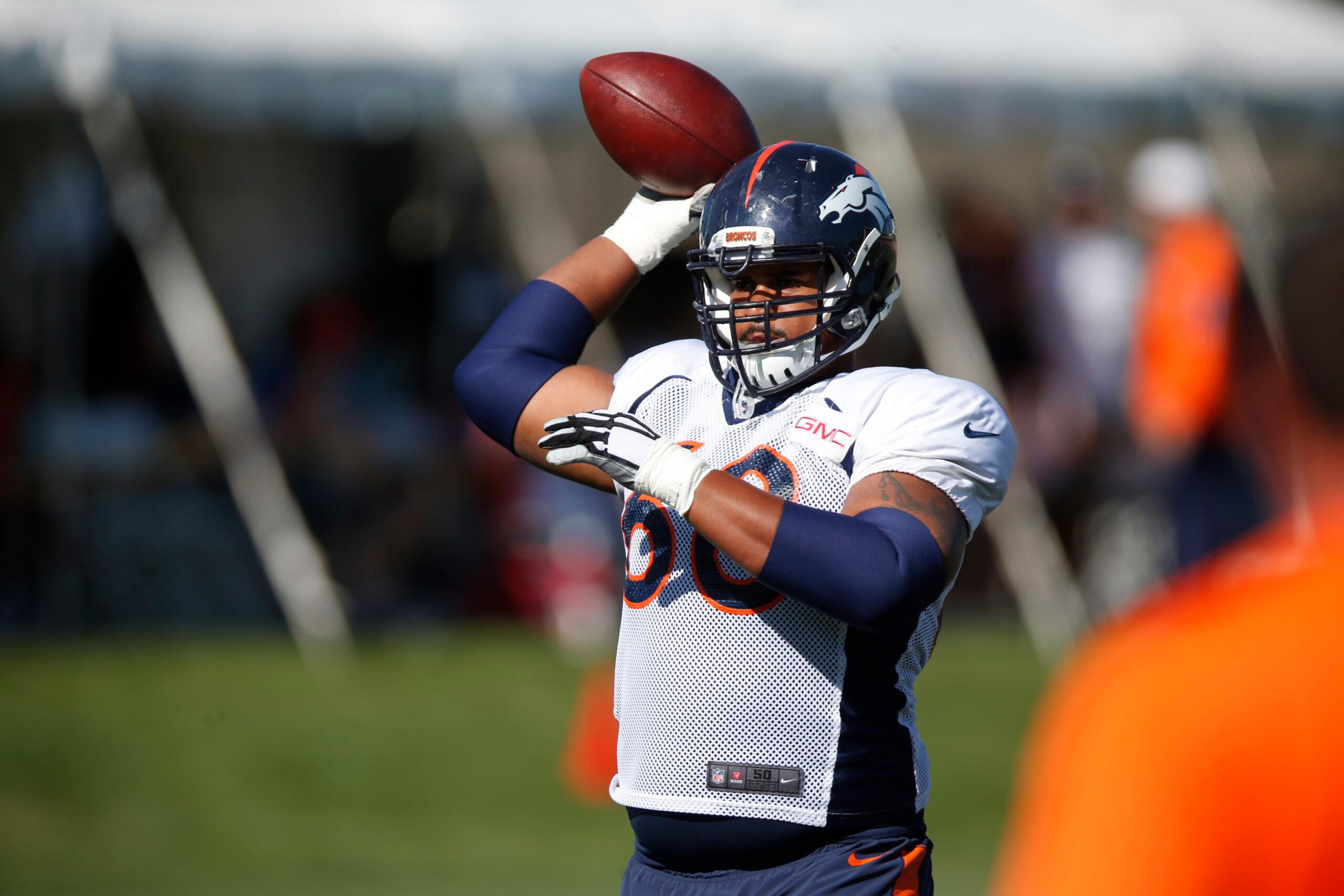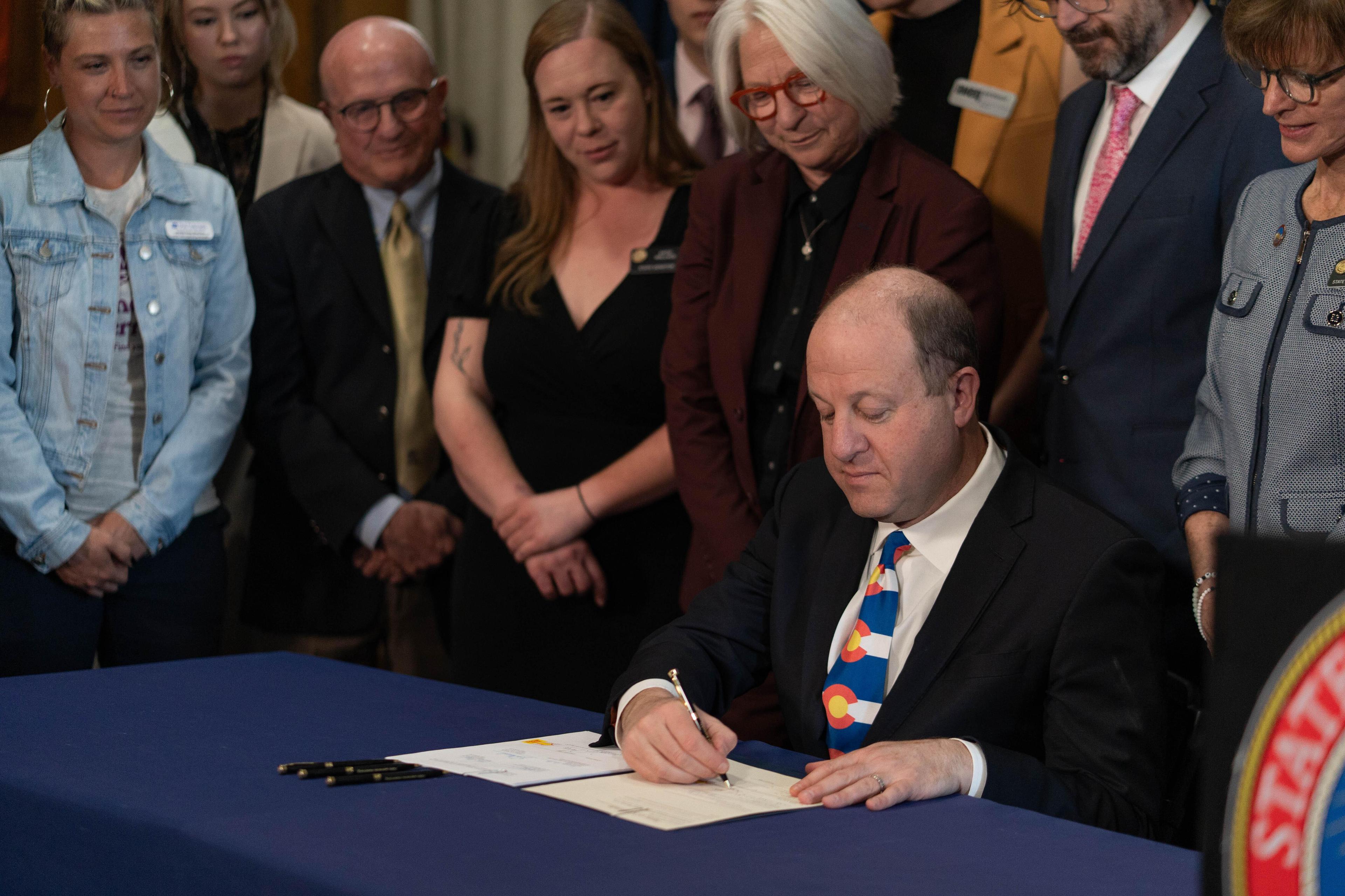
It’s not like National Football League players don’t notice or wonder about how or why certain people get head coaching jobs across the league — but while it certainly induces its fair share of head scratching, it rarely goes outside the locker room.
That is, until a lawsuit was filed Tuesday by former Miami Dolphins head coach Brian Flores, which says racism against fellow Black head coaches is pervasive in the league. Flores also claims leadership of the Denver Broncos engaged in racism in what he says was a "sham interview" with the team in 2019, the year the Broncos hired former head coach, Vic Fangio.
The lawsuit is rocking the NFL, but the issue of lack of diversity in the league’s upper management is not new.
“It's the most known untalked about conversation in the NFL,” said Ryan Harris, a former offensive lineman for the Denver Broncos. “Every player, white or Black, could tell you brilliant coaches that they played with, that for some reason, never got an opportunity to be a head coach and the majority of those coaches are people of color.”
In the aftermath of the lawsuit against the NFL, and a number of teams, including the Broncos, alleging racial discrimination, Harris spoke with Colorado Matters’s Nathan Heffel about diversity in the front office and NFL coaching ranks, as well as the long-term implications of Flores’ actions.
This interview has been edited for clarity and length.
Nathan Heffel: For a Broncos fan, this must seem like complete whiplash. Fans were celebrating the official announcement that the team was up for sale and the possibility of a fresh start with new head coach, Nathaniel Hackett. However, by the afternoon, this lawsuit naming Broncos leadership, including president Joe Ellis and former General Manager John Elway, comes out. What are your initial thoughts?
Ryan Harris: I think with Brian Flores — if everything comes out to be true — that he's doing something courageous and if it doesn’t turn out to be true, he'll probably face some lawsuits in return. There are some very damaging allegations and most shocking of all is the fact that he was asked to lose games and the owner of the Miami Dolphins, Stephen Ross, was offering $100,000 to do so. If you're the Broncos front office, I'm sure you're shocked at what happened. Brian Flores has made some very damaging accusations that have touched a lot of teams in the NFL and unfortunately the Broncos are going to have to continue to defend themselves here as the case continues.
Heffel: The Broncos released a statement calling the allegations of racism "blatantly false." A lot of this lawsuit centers around something called the Rooney Rule, which is a mechanism created by the NFL in which teams hiring for high profile positions like head coach or general manager have to interview candidates of color. Is this lawsuit an indication that the rule isn't working as intended?
Harris: As it pertains to the Giants head coach hiring, they interviewed Brian Flores the afternoon before they announced their head coach, so that's one of those timelines where you say, ‘Whose story does this prove? Does this prove the NFL side and the Giants' side, that they really did take Brian Flores's interview seriously?’ Or, is it Brian Flores' side who says, 'How can you bring me in for a serious interview and name a coach within hours the next morning?'’
And unfortunately, yes, there are some coaches who have been box checkers for teams. I played against Jerod Mayo who was a head coaching candidate — who the Broncos interviewed — and you're talking about a linebacker's coach who had two years of coaching. You really believe he's ready for a head coaching position? I hope he is, but that seems pretty illogical. Where you'll get into trouble with the law is if you are not seriously interviewing a candidate per your hiring guidelines, and that's where Brian Flores will have an opportunity to prove his case.
Heffel: For context with the Broncos interview in 2019, that included leadership. The lawsuit states, the pair were late for the interview and, "looked completely disheveled and it was obvious that they had been drinking heavily the night before." In their statement, the Broncos said, "Our process was thorough and fair to determine the most qualified candidate for our head coaching position." Does that track with you given that Fangio's predecessor Vance Joseph was Black?
Harris: I believe Joe Ellis to be one of the most upstanding characters in our community. That would be very out of character in my experience with Joe Ellis. And again, this is something that can easily be proven, right? If this case gets to discovery, what are the receipts the night before at a restaurant? Did John Elway actually show up late? If he didn't, the Broncos are absolutely saying, "Hey, this is without merit." This is something that will be proven.
What Brian Flores alleged about the 2019 interview would be out of line with my experience with John Elway and especially Joe Ellis, but that does not mean that Brian Flores is lying and it could very well mean that the Broncos are telling the truth. It's just murky. But somebody is lying and whoever's lying should be punished to the full extent of the law.
Harris: What are the reactions from other Broncos or other players in the league that you've been hearing?
Harris: Players want to find out if it's true or not; Especially the part of an owner paying money to lose. Hugh Jackson [the former coach of the Cleveland Browns] also came out and said that his owner wanted him to lose and he has text messages proving that. Because as a player, you're saying, ‘Wait a second. I'm going out there and risking my entire livelihood every single game and if you want us to lose, you're discrediting the game.’
I think everyone in the NFL is shocked at the revelation that owners, in fact, may have been tanking their teams, something the NFL's prided itself on not doing with its organizations.
Heffel: In a statement about the lawsuit, the NFL said, "Diversity is core to everything we do," but in the same statement, they proclaim Flores' allegations were, "Without merit." What does it say for an organization to put that out, rather than saying the claims were disturbing and would warrant further investigation?
Harris: The part of that statement that I don't get from the NFL is that this is without merit. I think anybody paying attention to the NFL would realize that this is a constant problem that has been going on since the 1980s when Congress interviewed members of the NFL to clear up their hiring issues. Also they have done some good things to get other people of color in these roles. There are more people of color in front-office positions than ever before and hopefully that's a trend that continues as the product on the field has 70 percent African American athletes.
Heffel: Flores says in a statement, "My sincere hope is that by standing up against systemic racism in the NFL, others will join me to ensure that positive change is made for generations to come." How often do Black players talk about that discrepancy in the locker room, and how often did white players participate in those conversations?
Harris: It's the most-known untalked about conversation in the NFL. Every player, white or Black, could tell you brilliant coaches that they played with, that for some reason, never got an opportunity to be a head coach. And the majority of those coaches are people of color. When you're a player and you're with a brilliant coach who's doing things right — helping you win, helping you succeed — you wonder, how is this coach not a head coach? You're left to be curious, and the mind comes up with only a few answers that explain why brilliant coaches wouldn't make the natural progression to either a front-office or a head-coaching position.
Players notice that. Everybody at their office place — you notice your diversity, too. This is something that all of us are going through at the workplace. This is something that, as a society, we need to get better at including people of color in key positions that help you make more money, grow your fan base, grow your profit base.
Think about the first bank that said, "Se habla Español." I bet you they made more money than anybody else. The proof is in the pudding and the data that diversity helps increase profits — but we have to be better as a community at doing this, and the NFL is no different.
Heffel: Where does this go from here? Do you think this is the beginning of some soul searching for the NFL, and for possibly the Broncos? Or what if this lawsuit doesn't go forward; Are we back to the same old, same old?
Harris: I believe this will end in an agreement, or some other type of resolution, without going to court. The NFL is a billion-dollar business. This is a distraction: they want this to go away. So, whether it's a settlement or something of that nature, the last thing the NFL wants are text messages and emails of its owners and its general managers becoming public record.
The NFL will want this to stop, but this could also get bigger than Brian Flores if there are other coaches who feel that they have been treated in a similar manner. He's filing with a class action option, and if that gets approved, then you may see two, three, 10 other coaches come in and that becomes a bigger problem for the NFL and increases the likelihood of a settlement, in my opinion.
Related stories
- Denver Broncos to hire Packers’ Nathaniel Hackett as team’s next head coach
- Branson, Colorado’s new field of dreams finally matches the tiny town’s football talent
- Not many expected the Colorado Rapids to win much this season. For coach Robin Fraser, success lies in the collective
- Sports gambling takes off in Colorado, raising profits, taxes and concerns alike at casinos








